Welcome to Team Policy Debate!
In this event, a team of two debaters proposes a specific plan to accomplish the goal stated in the resolution while another team of two debaters opposes the plan and/or the resolution. This form of debate simulates argumentation in a legislative body.
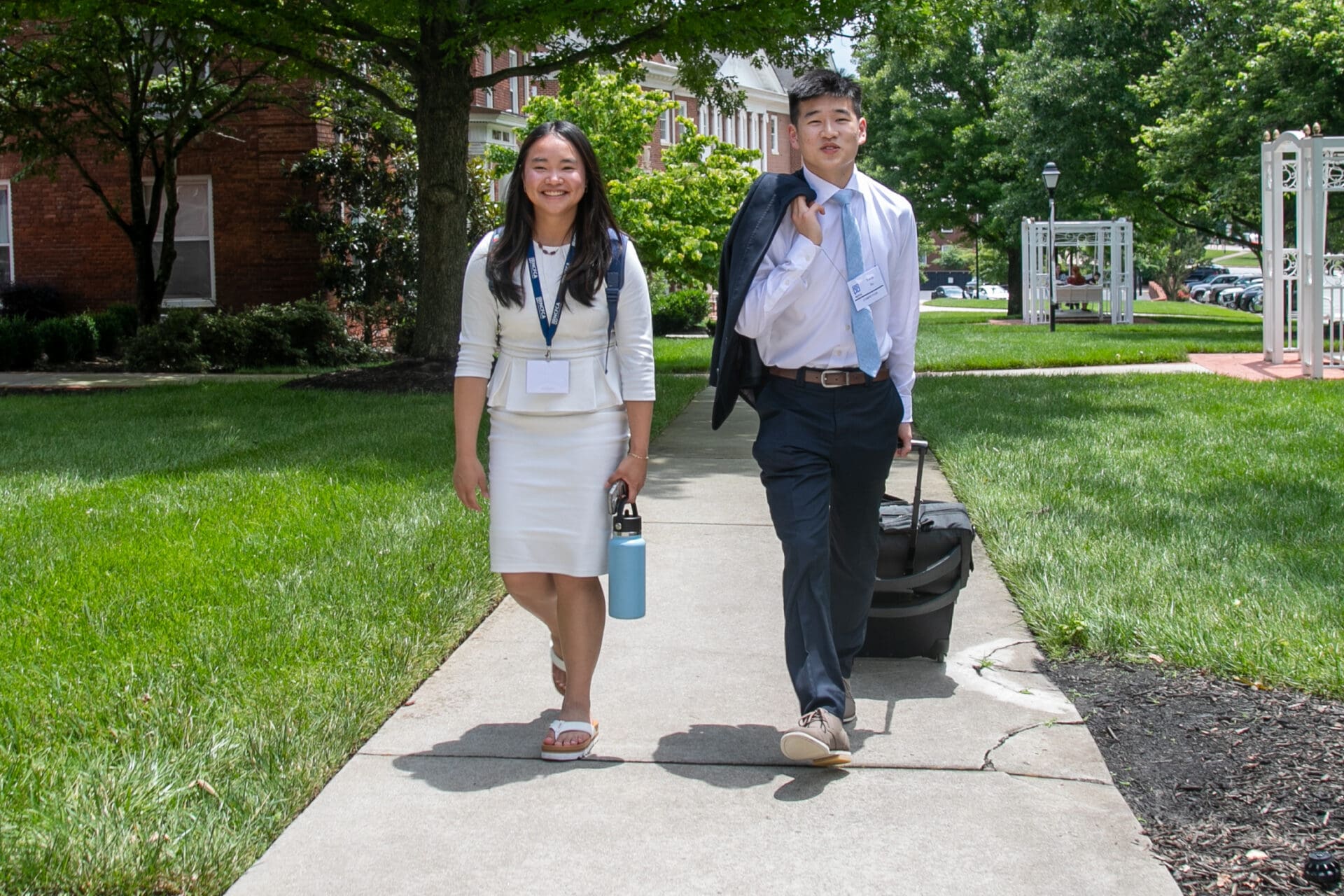
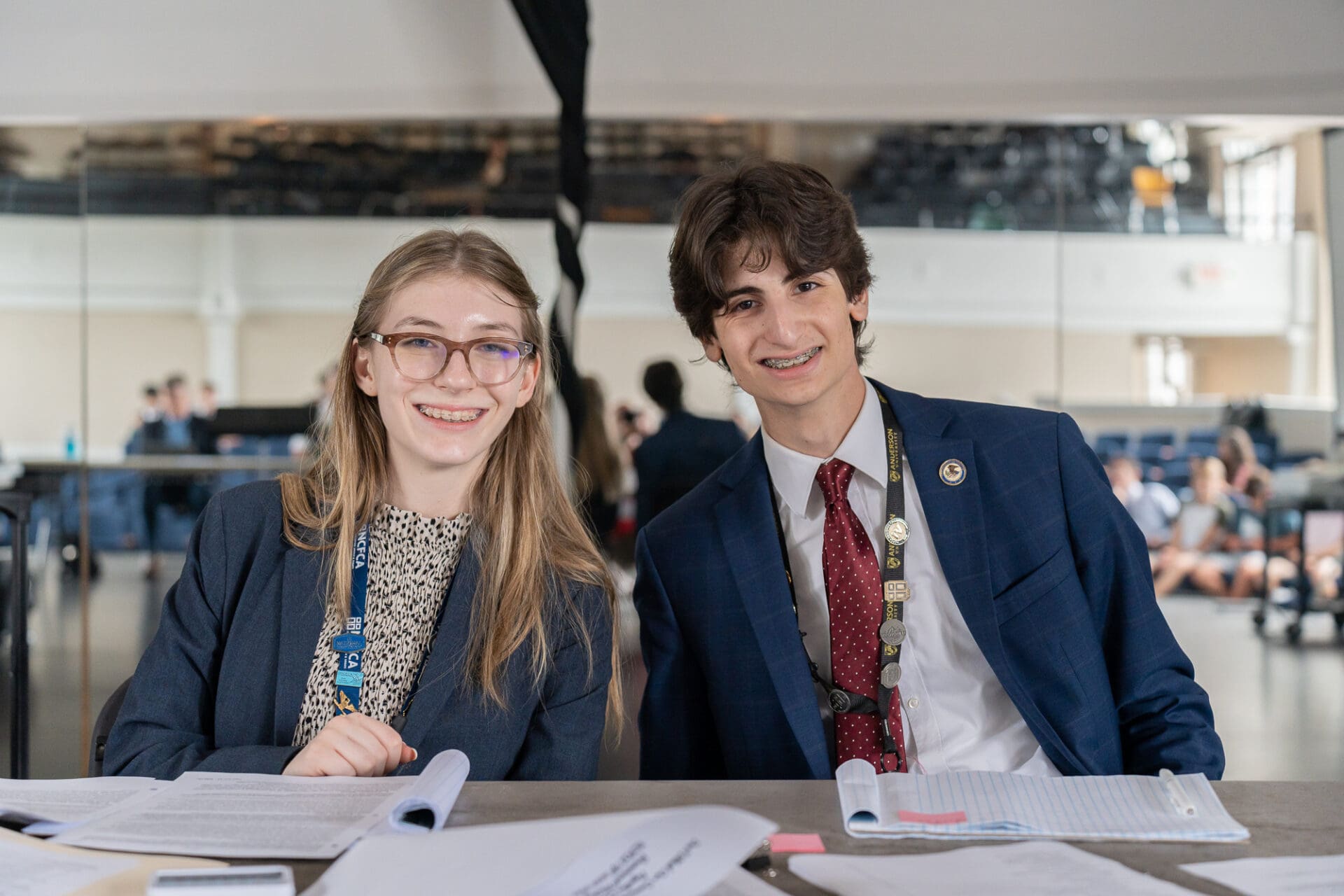
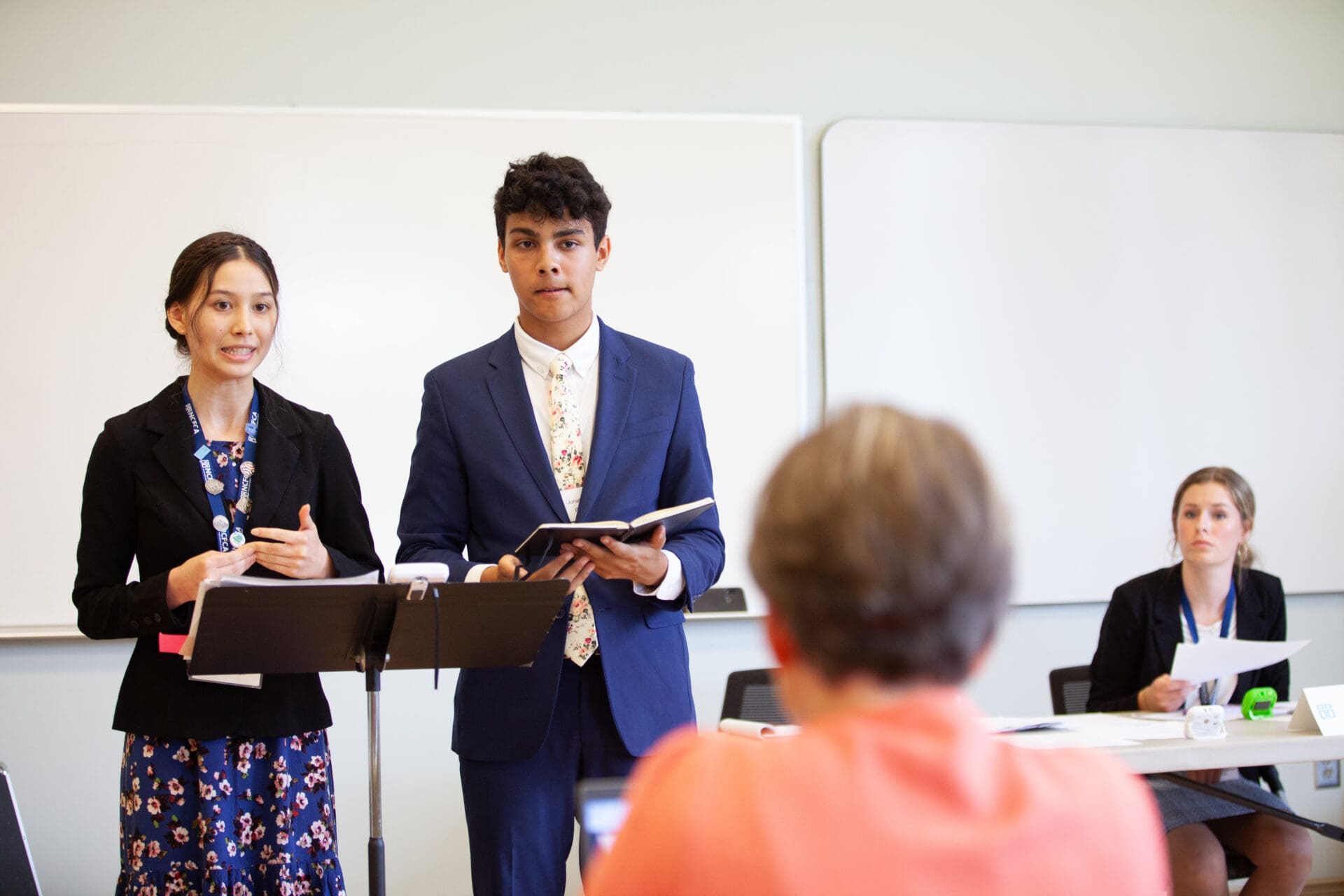
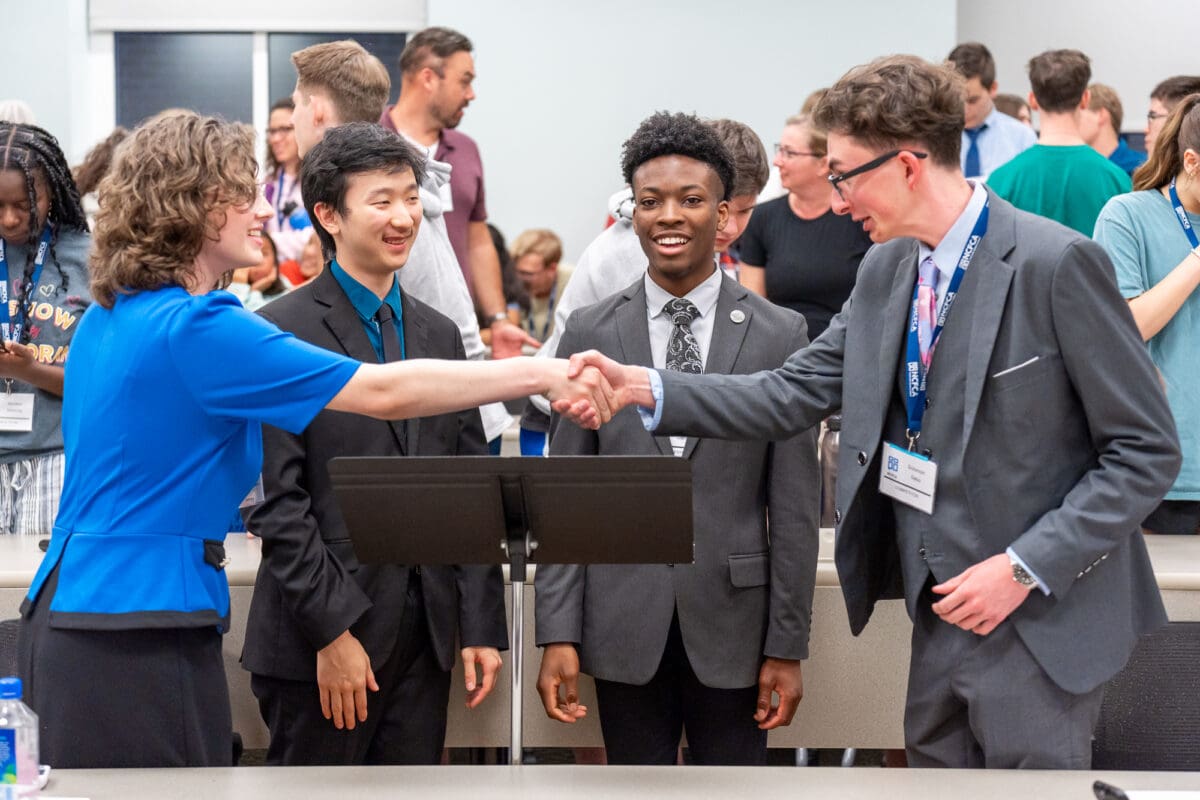
Our Resolution
Debate resolutions set the boundaries of the topic that teams will debate for the season.
The resolution for our current 2025-2026 season is
Resolved: The United States Federal Government should significantly reform Congress.
Team Policy Debate
Learn More
Policy debate challenges students to think critically about laws, regulations, and policies that impact societies. It seeks to identify possible problems with current conditions (the status quo) and weigh the advantages and disadvantages associated with making a change in policy. The requirement to alternate between affirming and negating a resolution helps students learn that there are reasonable arguments for both sides of most policy proposals.
How This Event Works
Debaters use different ways to structure cases and arguments, but the affirmative team will generally identify a problem with the current status of a policy (or the lack of policy) and try to explain the resulting harms or benefits withheld. In most rounds, they will argue that their plan will provide advantages when compared with the status quo.
The negative team may call into question whether the alleged harms in the status quo are really serious, and/or whether they might be solved some other way. They may question whether the proposed plan will actually solve the alleged problems with the current situation, point out disadvantages and argue that those outweigh the possible advantages, or even present an alternative approach.
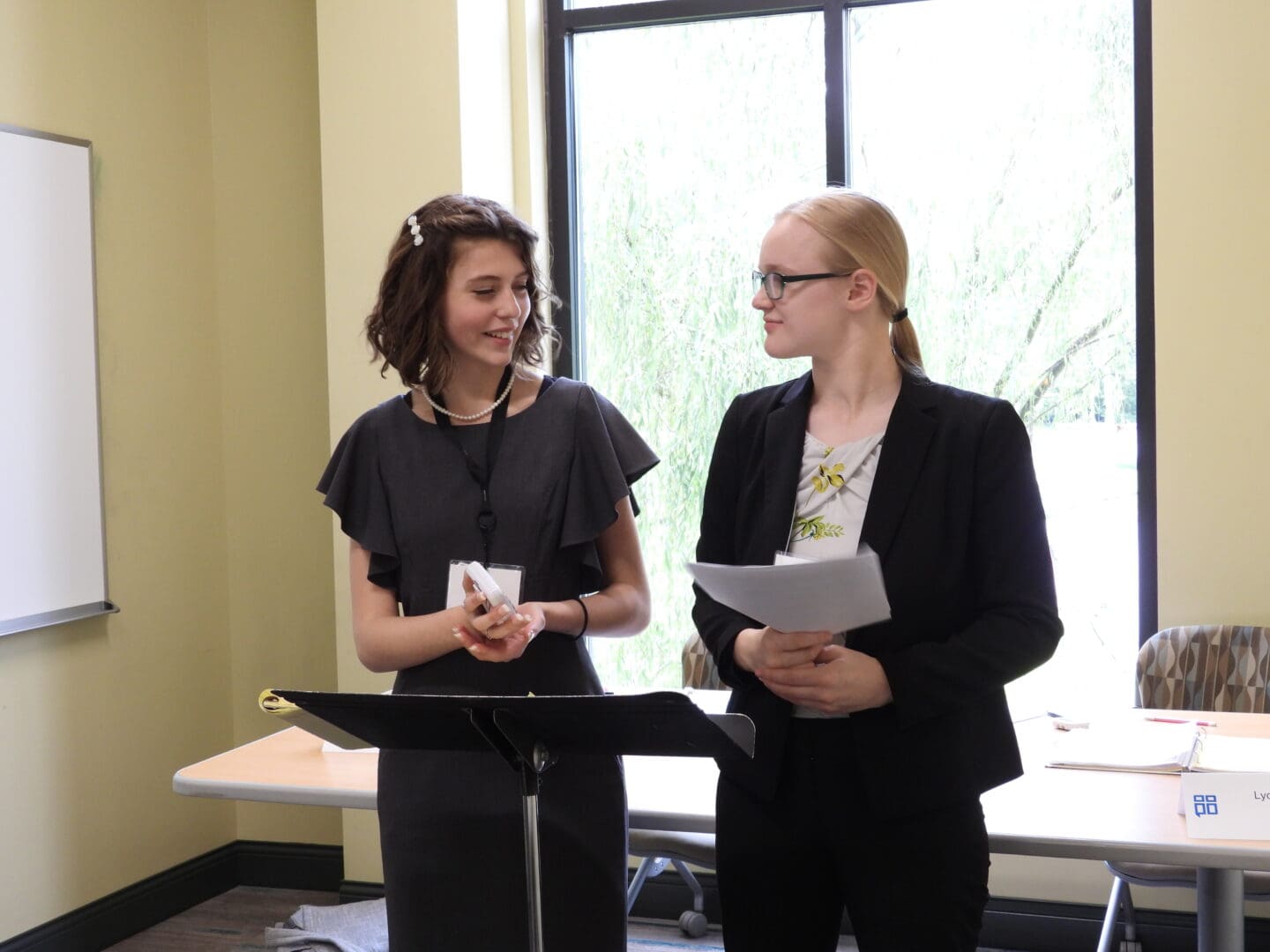
Policy Debate Competition Resources
The following FREE resources for the 2024-2025 season are available to help competitors start the season.
- Resolution Introduction (TP 25-26)
- Resolution Starting Points Video (TP 25-26)
- Exhibition Round-LAST SEASON (24-25)
- Sample Affirmative Case (TP 25-26)
- Sample Affirmative Case Backup (TP 25-26)
- Sample Negative Brief (TP 25-26)
- Debating with Integrity Education Video Clips
- Flow Sheets to Take Notes: Letter (TP) or Legal (TP)
- Ballot Sample (TP)
Please scroll down for information about additional resources available through the NCFCA Shop.

25-26 Policy Resolution Kickoff
New for 2025! Join the NCFCA debate committee and guest expert on Saturday, July 12 for a 1-day, deep dive into the 2025-26 Policy resolution. We will cover the resolution, research areas, current U.S. policy, Affirmative and Negative perspectives, and case ideas. The live event will be held from 11 AM-5 PM CT. All participants will receive the research bundle after the event. This document includes presenter notes, research links, and other valuable materials.
Can’t join us live? The research bundle, available for families or groups, will be available one week after the live event and includes presenter notes from the live online event, research links, and other valuable materials.

Check Out our Comprehensive Policy Debate Curriculum
Written from a biblical worldview, this 15-week course invites Christian high-school students to weigh ideas, write and deliver a proposal for reform, defend a position, counter opposing arguments, and persuade an audience.
The Family Bundle is perfect for homeschooling families and includes the Student Text, the Student Workbook, and the Teacher Manual.
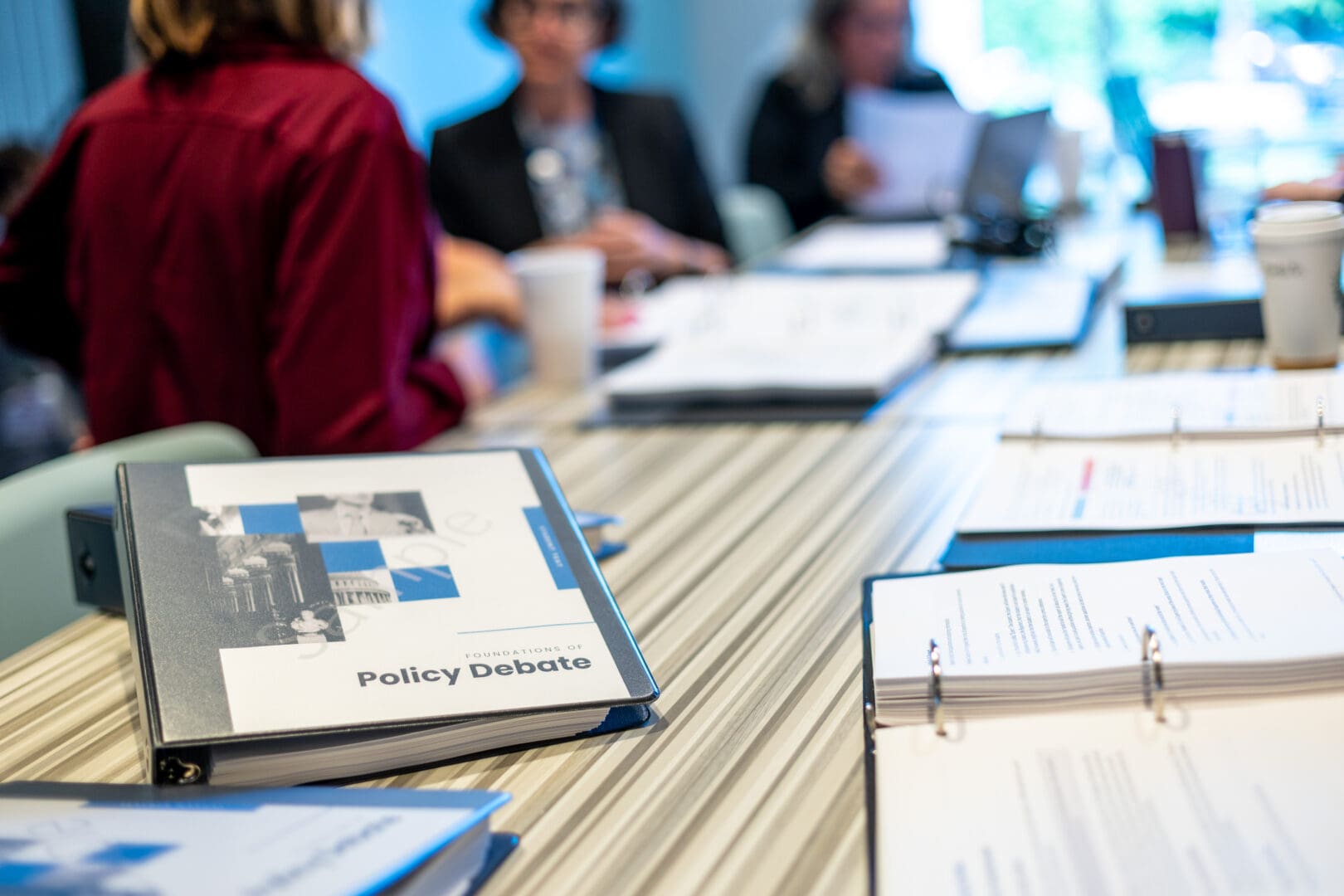
Get Started with Intro to Policy Debate Kit
With six hours of instruction and activities, an easy-to-follow facilitator guide, printable student activity packets, and slides, even a novice parent can successfully lead students through Intro to Policy Debate.

Team Policy Debate FAQs
How are NCFCA rules and policies enforced?
Every type of competition has rules, and NCFCA is no exception. Our tournament Compliance teams and our National Adjudication Team work throughout the season to ensure a fair and level playing field for everyone involved. Learn more about how rule enforcement works by visiting our Compliance FAQs page.
How many debate rounds will competitors have in each tournament?
There will be six preliminary rounds of debate for all competitors (except in the event of an odd number of teams which causes some teams to have only five preliminary rounds). Teams with the strongest winning records will advance to elimination rounds. The number of elimination rounds depends on the number of teams entered in each style of debate.
How do debaters know if they will be affirmative or negative?
In preliminary rounds, debaters will have three rounds as the affirmative team and three as the negative team except in the case that they have been assigned a bye for one round. Before each round, the postings will show which teams are debating one another and which team will be affirmative and which team will be negative. Competitors must take care to confirm their side for each round. It is possible they may debate on the same side as the prior round.
What is power matching in debate
After the first round, teams are matched against another team with the same or similar win/loss record up to that point in the tournament. The details for how power matching works are available in the Tab and Qualifications Guidelines in the Resource Library.
When and how do competitors get their ballots?
After the tournament, ballots will be available from the Ballots button on the right side of the dashboard just above the Tournament Results button.
Tips for Online Debate Evidence Exchange
File uploads are strongly recommended as some formatting may not be retained if evidence is copied directly into the evidence-exchange chat.
Prior to the tournament, have evidence files named, saved as pdfs (recommended), and organized in order to upload promptly, if requested. Examples include:
- AC/1AC
- Every piece of evidence that may be presented in a debate round saved as individual files (recommended)
Ensure that each file includes a proper citation in accordance with the rules.
Lengthy pieces of evidence (more than 2,000 characters) cannot be copied and pasted into the evidence-exchange chat.
Brief pieces of evidence (less than 2,000 characters) may be shared via the evidence-exchange chat if created and formatted in Google docs or other web-based word processing platforms. Sharing direct links to evidence sources is not permitted.
Is it okay to quote the Bible in debate rounds?
For a comprehensive answer to this question, please see our blog post on the use of scripture in debate rounds
What is meant by “late arguments” in debate?
For a comprehensive answer to this question, please see our blog article on new arguments in rebuttal speeches.
Why is evidence so important in debate?
For a comprehensive answer to this question, please read our blog article on why citations matter in debate. Watch 🖥
Does NCFCA provide a printable copy of the rules?
We have transitioned to using our NCFCA.org website as the official means of publishing all competition rules and guidelines. This change allows for improved navigation, organization, and content presentation options, especially for new families.
However, we realize that some participants also like to prepare using printed documents. We offer a print-button option on all of our rule pages, but the formatting options are limited and can be cumbersome with some browsers, so here are some tips you can use to save paper and ink if you feel like you need to print the rules.
Make your own printable pages. You can easily copy the rules you want into a Google Doc and the formatting will be maintained nicely.
- This step-by-step guide will show you how to start a Google Doc.
- Once you have a Google Doc open along with the website rules on a different browser tab, use your cursor to highlight the section of rules you would like to print and then simultaneously press the keys: CTRL/C (PC) or COMMAND/C (Mac). Note: The process works best if you highlight only one set of rules or one set of guidelines at a time (without highlighting over the break between rules and guidelines).
- Next, place your cursor in the document and simultaneously press the keys: CTRL/V (PC) or COMMAND/V (Mac). This should make the text appear in your document.
- This process will work in a similar way with Microsoft Word and other document options.
- With the text copied into your own document, you can change the font size and margins to your own preferences.
Avoid duplicate content for speech rules by printing the guidelines only once for each event category (limited prep, interpretation, and platform). The guidelines for each speech category are replicated on the appropriate event pages. The exceptions to this are that Digital Presentation has an extra “Digital Presentation Protocols” section, Apologetics includes the topics, and Extemporaneous has unique timing protocols.
Please keep in mind that our website contains the official copy of all rules. We will alert participants through our affiliate communications emails if we make any substantive changes to rules or guidelines, but it is the responsibility of competitors to follow the officially published rules.
When do I need to use a disclaimer in debate?
Disclaimers in debate should be incredibly rare. The Debate Committee works hard to ensure that an adequate treatment of any of our resolutions will not require the use of material that would need a disclaimer.
Although particularly shocking, violent, or grisly material would warrant a disclaimer, we would encourage parents and coaches to educate their students about what language and examples are fitting to the setting and to lovingly correct those that are out of place. Remind debaters that they may be debating a student as young as twelve years old who cannot excuse themselves from the debate round.
We would encourage debaters to steer clear of extreme examples and descriptive vocabulary that paints a graphic picture. (Sexually explicit language or descriptions are never appropriate in a debate round and are banned by our competition material policy, along with all forms of vulgarity.) Such speech is not necessary in order to debate our resolutions. Instead, when handling potentially sensitive subject matter, students can:
- Use statistics rather than graphic stories
- Use truthful but more succinct or general language
- Focus on the philosophical or policy issues that are at the heart of the resolution
Christian debaters should seek to sharpen each other in order to gain the skills they can use as ambassadors for Christ. Learning how to discuss heavy themes in a discrete and gracious way is a skill that is worth sharpening.
The new rules don’t include allowing debaters to ask the judge his or her judging philosophy. Are debaters still allowed to do this?
Yes, debaters are allowed to ask the judge for his or her judging philosophy or experience before the start of the round. The Debate Committee removed the rule that only allowed the First Affirmative Speaker to do this for two reasons:
- This year, we made an effort to simplify the rules, narrowing them to the ones that we can adjudicate well and penalize if needed.
- The rule had served its purpose to end lengthy discussions with the judge before the debate round.
We believe debaters are capable of asking the judge for some brief information without getting into a long discussion. We are trusting them to keep the exchange very brief and start the round on time.
Find Your Voice, Shape Your Future
Join us as you embark on a transformative journey to become a powerful and effective communicator.
